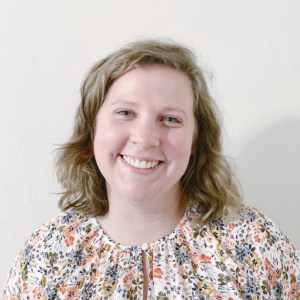Meet SRNA’s New Volunteer and Community Coordinator!
Please welcome Lydia Dubose, SRNA’s new Volunteer and Community Coordinator! Based in Texas, Lydia is committed to lifelong learning and believes in the power of community to create a more kind and just world. Prior to SRNA, she worked with nonprofit organizations to improve resources and opportunities for under-resourced families, those with heart conditions, and homeless youth.
By Lydia Dubose
I am excited and grateful to be joining the SRNA team. Ever since I first learned about SRNA, I have been impressed with the abundance of information and the care that the organization shows for those affected by rare neuroimmune disorders. This care is shown not only through support groups and direct interactions with staff, but also through supporting research efforts to better understand these conditions and sharing the latest information in ways that are accessible.
As a child and teen, I enjoyed volunteering my time to support causes bigger than myself and engaging in a plethora of hobbies. When choosing a path for my education, I studied psychology because I was interested in learning why people think and behave as they do. I learned the ways our experiences and environments shape who we are, and the wide disparities that make traditional ideas of success profoundly more difficult for some compared to others, which led me to pursue a career in the nonprofit sector. Before joining the team at SRNA, I had the opportunity to work with many different people with a variety of needs. Whether it is a family lacking resources, someone living with a heart condition, or a young person experiencing housing insecurity, I have seen the way that connecting with others can help people feel resilient and keep going. We all require care in one way or another, and we are all capable of offering support as well.
In my short time with SRNA so far, I have already been impressed by the ways that the community is making a difference. There are many outstanding projects that my colleagues are working on to support those with neuroimmune conditions and their families. The volunteers I have met are generous with their time and great at what they do. At a recent support group meeting, the participants showed consideration for one another as they each shared their unique perspectives and experiences.
I am grateful to get to do this work together with SRNA staff, board members, and volunteers, and I look forward to getting to know more of our SRNA community in the months to come.






